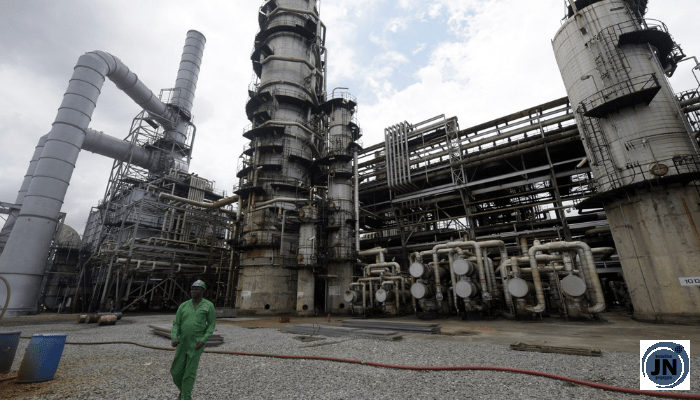
Oil marketers, under the banner of the Petroleum Products Retail Outlets Owners Association of Nigeria (PETROAN), have urged the Federal Government to privatize state-owned refineries, foster competition, promote transparency and accountability, and invest in infrastructure to enhance the efficiency of the downstream petroleum sector. This comes as part of their broader call for structural reforms that will elevate the sector's capabilities and enable it to meet growing local and international demands effectively.
In particular, they recommended the privatization of the Warri and Kaduna refineries, each with a capacity of 125,000 barrels per day. These refineries have been underperforming for years, with frequent maintenance shutdowns, inadequate processing capacity, and declining output. PETROAN believes that privatizing these refineries and transferring them to reputable private sector operators could improve their operational efficiency, reduce government expenditures, and increase production capacity, making them more competitive on both the local and global market stages.
Additionally, the marketers called on the government to enforce local content development, expand the adoption of Compressed Natural Gas (CNG) by 2025, and address the persistent issue of petroleum product smuggling. The implementation of local content policies will ensure that more indigenous companies have a stake in the sector, thus fostering economic growth and empowering local businesses. At the same time, increased use of CNG could help reduce the country’s reliance on gasoline and diesel, providing a cleaner and more sustainable energy alternative while promoting environmental consciousness in the energy sector.
They also appealed for increased access to crude oil for local refineries and a grant of N100 billion to support 10,000 businesses struggling due to the removal of fuel subsidies. Many local businesses are facing financial difficulties as they grapple with the removal of subsidies on fuel, which has led to rising operational costs and a decline in productivity. PETROAN is calling for government intervention to prevent the collapse of these businesses, which would otherwise result in significant job losses and a stunted economic recovery for the country.
PETROAN’s demands were outlined in its “2024 Retrospect and Outlook for 2025” document, released in Abuja on Saturday. The report, signed by PETROAN’s National President, Dr. Billy Gillis-Harry, National Secretary, Barrister Adedibu Aderibigbe, and National Public Relations Officer, Dr. Joseph Obele, included detailed recommendations to strengthen the downstream sector. It emphasized that privatization would enhance efficiency and curb government expenditure, noting that the government’s involvement in refinery operations has led to inefficiency, corruption, and excessive reliance on imports. By privatizing these refineries, PETROAN believes the market would see increased investment, better technology, and a reduction in the country’s dependency on imported refined petroleum products.
The document proposed the following measures to improve the downstream sector in 2025:
Privatization of Nigerian-Owned Refineries: To boost efficiency and reduce government costs, PETROAN suggested privatizing the Warri and Kaduna refineries, transferring them to reputable private entities with experience in refinery operations.Encouraging Competition: The association urged the government to promote a competitive market, attract new entrants, and create a level playing field to prevent monopolies and ensure fair pricing. By supporting competition, they believe consumers would benefit from better prices and improved service standards.
Strengthening Monitoring and Evaluation: Establishing a robust system to track the performance of downstream operators and enforce compliance with regulations was recommended. This system would ensure that operators follow best practices, maintain safety standards, and reduce corruption within the sector.
Investing in Infrastructure: PETROAN advocated for sustained investment in critical infrastructure, including refineries, pipelines, and storage facilities, to improve local refining capacity and reduce dependency on imports. They emphasized that strengthening the infrastructure within the downstream sector is crucial to the long-term sustainability of Nigeria’s oil and gas industry.
Promoting Local Content: Supporting indigenous companies and incentivizing research and development in the sector were highlighted as key strategies to strengthen local industry players, create jobs, and increase Nigeria’s participation in the global oil and gas supply chain.
Boosting CNG Adoption: Private-sector participation, regulatory reviews, and public awareness campaigns were suggested to promote the widespread use of CNG. PETROAN believes that CNG could be an affordable and cleaner alternative to gasoline and diesel, especially for transport operators and industries.
Curbing Smuggling: Collaborating with neighboring countries and employing digital tracking systems to monitor the movement of petroleum products were proposed as solutions to tackle smuggling. The marketers expressed concerns that the rampant smuggling of subsidized petroleum products to neighboring countries is undermining the local economy and contributing to fuel shortages.
The report further emphasized the importance of prioritizing crude oil access for local refineries to reduce reliance on imported petroleum products, drive economic growth, and strengthen energy security. By ensuring that local refineries have enough access to crude oil, PETROAN believes Nigeria can begin to reduce its dependence on foreign refined products, thus improving the country’s energy security and helping stabilize fuel prices.
PETROAN also appealed to President Bola Tinubu for a grant of N100 billion to prevent the collapse of 10,000 businesses at risk due to subsidy removal, warning that such closures could lead to significant job losses and increased poverty. The association stressed that the financial aid would be vital for supporting businesses in key sectors such as transportation, agriculture, and manufacturing, which have been adversely affected by the removal of fuel subsidies.

